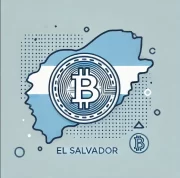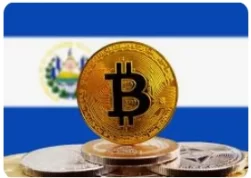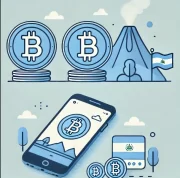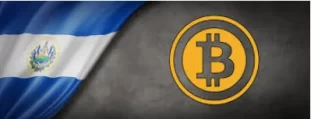El Salvador – The First Country to Make Bitcoin Legal Tender
Bitcoin, the original crypto king, has been shaking the financial world since 2009. But in 2021, El Salvador went all-in, becoming the first country to officially adopt Bitcoin as legal tender. Headlines exploded globally, debates erupted among economists, crypto enthusiasts, and everyday citizens. Why did this small Central American nation bet on Bitcoin? How does this affect the economy, the people, and the global crypto landscape? Let’s dive into El Salvador’s live Bitcoin experiment, blending facts, analytics, and a sprinkle of crypto humor.

Why El Salvador Chose Bitcoin
El Salvador’s economy relies heavily on remittances, which account for roughly 20% of its GDP. Traditional money transfers are slow, expensive, and full of middlemen. Enter Bitcoin: near-instant transactions, minimal fees, and peer-to-peer payments. President Nayib Bukele, a tech-savvy reformist, saw an opportunity not just to modernize the economy but to attract foreign investments and foster digital innovation. Approximately 70% of adults lacked bank accounts, so Bitcoin offered a path toward financial inclusion and empowerment.
The Chivo Wallet app was launched to simplify Bitcoin adoption, with a $30 BTC bonus for new users. USD continues to circulate alongside Bitcoin, giving Salvadorans freedom of choice. Over 200 Bitcoin ATMs were deployed nationwide, turning the country into a living blockchain lab. From small vendors to tech startups, everyone could experiment with crypto, making the adoption process both practical and symbolic.

Economic Gains and Crypto Hype
The potential gains are substantial. Remittance costs dropped significantly, boosting household income for families receiving funds from abroad. Bitcoin attracted global crypto investors and entrepreneurs, while tourism spiked as blockchain enthusiasts visited the first Bitcoin nation. The ambitious Bitcoin City project, funded through Bitcoin-backed bonds, promises a futuristic hub for innovation, tech startups, and sustainable energy solutions. El Salvador is not only adopting crypto—it’s branding itself as a global testbed for blockchain experimentation.
Bitcoin’s volatility remains a double-edged sword. The country’s reserves fluctuate in value, impacting public perception and fiscal stability. As of December 2024, El Salvador held approximately 6,000 BTC (~$569 million), with plans to increase reserves to 26,000 BTC. Analysts highlight that a sudden market dip could temporarily destabilize government finances, yet long-term HODL strategies may yield massive gains. The government’s continued accumulation of Bitcoin reflects a high-conviction bet on the global adoption of digital currencies.

Risks and Challenges
Despite the hype, adoption faces hurdles. Many Salvadorans are skeptical, preferring cash over digital currency. Educational gaps and digital literacy issues slow widespread acceptance. International institutions, such as the IMF and World Bank, have voiced concern about potential macroeconomic risks. The combination of Bitcoin’s volatility, public hesitation, and external pressure makes El Salvador’s experiment uniquely high-stakes. From a global perspective, it’s a bold real-world stress test for crypto as legal tender.

Future Prospects for El Salvador
El Salvador’s future hinges on both domestic adoption and global market trends. Bitcoin City and growing tech infrastructure may position the country as a leading blockchain hub in Latin America. If Bitcoin stabilizes, Salvadorans could see tangible benefits: new job creation, investment inflows, and expanded financial access. On the flip side, prolonged market instability could test governmental and public confidence, and even affect credit ratings and foreign investment.
Who could be next? Countries with high remittance flows, a large unbanked population, and forward-thinking leadership may follow El Salvador’s lead. Panama, Paraguay, and some Caribbean nations are potential candidates. Each will need to tailor adoption strategies, but El Salvador provides a blueprint, showing both the potential and the pitfalls of national-scale crypto adoption.

Crypto Culture and Public Sentiment
Locals are navigating “Dollarismo vs. Satoshismo,” balancing cash transactions with crypto adoption. Early adopters flaunt Chivo Wallet bonuses and actively trade Bitcoin, while skeptics maintain traditional habits. Social media and meme culture amplify excitement, turning real-world adoption into a viral phenomenon. The growing familiarity with crypto, combined with government incentives, may gradually shift public behavior toward wider usage, creating a feedback loop that fuels further adoption.

Conclusion: A Bold Crypto Experiment
El Salvador’s Bitcoin experiment is a fascinating intersection of finance, technology, and culture. It demonstrates that cryptocurrencies are no longer confined to traders and investors—they can become real money, shaping economies. The coming years will show whether this initiative becomes a global model or a cautionary tale. Regardless, El Salvador has already secured its place in history as the first nation to fully embrace Bitcoin, proving that the crypto revolution can happen at a national level. For HODLers, investors, and curious observers, the world is watching every BTC move.